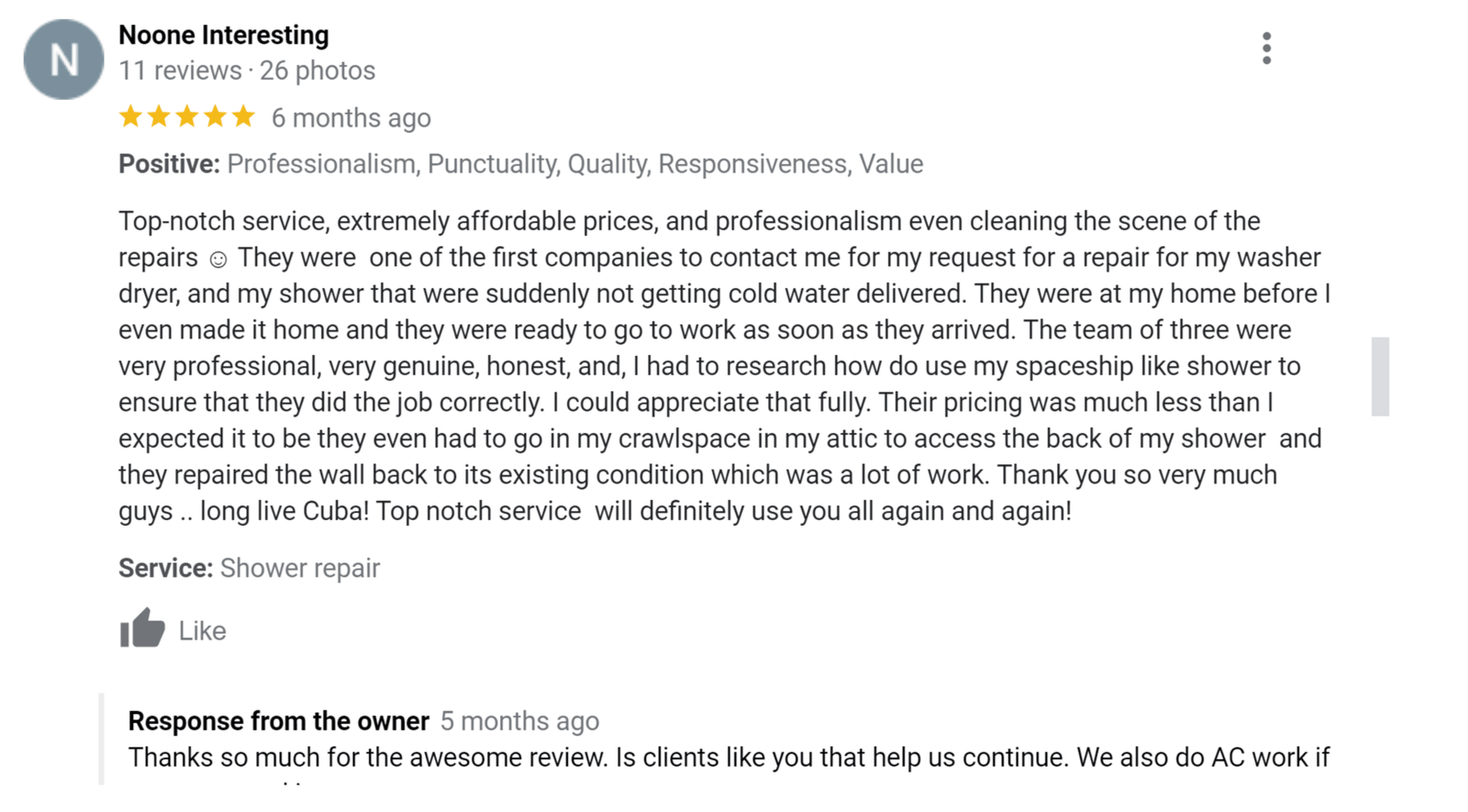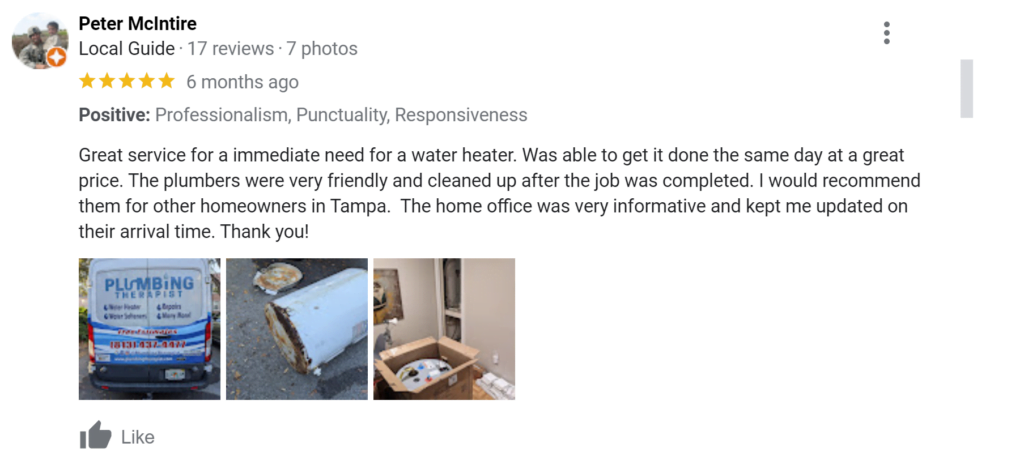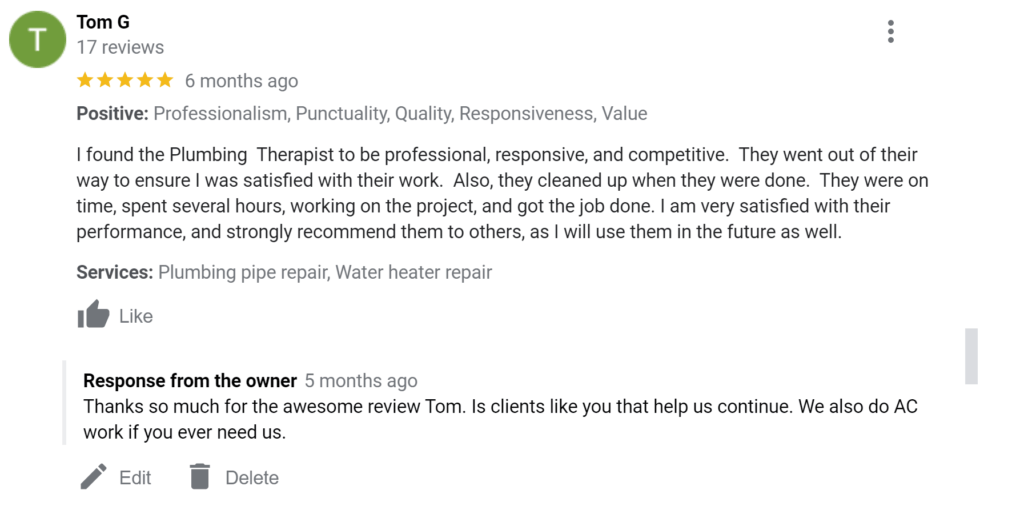Pool Heater Installation
Pool Heater Installation is a crucial service to ensure your pool remains comfortable throughout the year, especially in Tampa Bay’s varying temperatures. Our experienced team specializes in efficient and reliable installations, so you can enjoy your pool anytime you desire.
Do You Need Our Help ?
Feel free to contact us now
$99 Water Heater Flush + Free Plumbing System Inspection
Pool Heater Installation in Tampa Bay
Professional Pool Heater Installation Services in Hillsborough County, Pinellas County, and Pasco County
When it comes to enjoying your pool year-round in Tampa Bay, Plumbing Therapist has you covered with our professional Pool Heater Installation services. Our experienced plumbing experts understand the importance of maintaining your pool’s ideal temperature, and we’re here to ensure you can dive in whenever you want.
Why Choose Plumbing Therapist for Pool Heater Installation:
Expert Plumbing Team: Our skilled plumbing technicians are trained in the latest pool heater installation techniques, ensuring a seamless and reliable service.
Energy Efficiency: We prioritize energy-efficient pool heater installation systems to keep your operating costs down while keeping your pool comfortably warm.
Quality and Reliability: At Plumbing Therapist, we install only top-quality pool heaters known for their durability and performance, giving you peace of mind.
Custom Solutions: We tailor our services to your specific pool and budget, recommending the right pool heater for your needs.
Prompt Service: We understand that time is of the essence. Our team works efficiently to get your pool heater up and running quickly.
Our Pool Heater Installation Process:
Consultation: We start by understanding your pool’s requirements and your heating preferences through a consultation.
Recommendation: Based on our assessment, we recommend the most suitable pool heater for your needs.
Professional Installation: Our expert plumbers handle the installation process with precision and professionalism.
Thorough Testing: We thoroughly test the pool heater to ensure it’s working optimally and efficiently.
Maintenance Options: Consider our maintenance plans to keep your pool heater in top condition, extending its lifespan.
Contact Plumbing Therapist Today
Don’t let temperature fluctuations limit your pool enjoyment. Contact Plumbing Therapist today for expert Pool Heater Installation in Tampa Bay. Our plumbing expertise ensures your pool stays at the perfect temperature year-round. Trust us to make your pool therapy a reality!

Why partner with Plumbing Therapist?
Quality, Affordability, and Expertise.

No Hidden or Unexpected Charges

Free Estimates & Online Booking Available

Professionally Trained Technicians

Honesty is Guaranteed

Quick Communication & Service Within 24 Hours

400+ 5 Star Reviews

Why do you need to install a pool heater?
Installing a pool heater is essential for several reasons, and as Plumbing Therapist serving Tampa Bay, we can explain why it’s a valuable addition to your pool heater installation:
Year-Round Enjoyment: Tampa Bay’s climate allows for outdoor swimming nearly year-round. A pool heater installation ensures your water stays at a comfortable temperature, extending your swimming season.
Comfortable Swimming: Nobody enjoys jumping into a chilly pool. A pool heater keeps the water temperature just right, enhancing your swimming experience.
Health Benefits: Warmer water is easier on your body, making it ideal for exercise and relaxation. It can also relieve muscle tension and improve circulation.
Increased Property Value: A pool with a heater is an attractive feature for potential buyers if you ever decide to sell your home. It can add to your property’s value.
Special Occasions: Hosting pool parties, family gatherings, or events by the pool is more enjoyable when you can control the water temperature to suit your guests’ preferences.
Energy Efficiency: Modern pool heaters are energy-efficient, so you can enjoy a comfortable pool without significantly increasing your utility bills.
Extended Pool Equipment Life: Maintaining a consistent water temperature can extend the life of your pool equipment, like pumps and filters, reducing the need for repairs and replacements.
Preventing Algae Growth: Warmer water can help prevent algae growth, reducing the need for chemicals and maintenance.
Convenience: With a pool heater installation, you don’t have to rely solely on the sun’s warmth, giving you more flexibility in using your pool when you want.
Installing a pool heater in Tampa Bay ensures you get the most out of your pool, providing comfort, health benefits, and a longer swimming season. It’s an investment that enhances your property and overall quality of life. If you’re considering pool heater installation, Plumbing Therapist is here to help you make the most of your pool therapy experience.
If you would like more information, feel free to give them a call at (813)-437-4477 or you can book online and get their latest discount!
Customer Testimonials: Real Experiences with Plumbing Therapist
We proudly share the experiences and stories of our valued clients. Their feedback provides a glimpse into the quality of service and commitment to excellence we uphold at Plumbing Therapist. You'll read firsthand how our plumbing solutions have improved comfort and efficiency in homes across Tampa Bay. These testimonials illustrate our dedication to customer satisfaction and the difference our expert services can make.




Your questions answered
Common Pool Heater Installation Questions:
What type of pool heater is right for my pool?
Selecting the right type of pool heater for your pool depends on several factors, including your pool’s size, location, budget, and personal preferences. Here’s a brief overview of the three main types of pool heaters and their suitability for different situations:
Gas Pool Heaters:
- Suitable For: Gas pool heaters are a good choice for homeowners who want to quickly heat their pool, especially for short-term use or occasional heating.
- Advantages: They can heat the pool rapidly, making them ideal for colder climates or spontaneous pool use.
- Considerations: Gas heaters can have higher operating costs compared to other types, and they require a gas line connection.
Electric Resistance Pool Heaters:
- Suitable For: Electric resistance heaters are best for smaller pools or hot tubs, where energy efficiency may not be a primary concern.
- Advantages: They are easy to install and have a lower upfront cost compared to some other options.
- Considerations: Electric heaters can be less energy-efficient and may lead to higher operating costs over time.
Heat Pump Pool Heaters:
- Suitable For: Heat pump heaters are a great choice for homeowners who want an energy-efficient option for heating their pool on a regular basis.
- Advantages: They are highly energy-efficient, using ambient air temperature to heat the pool, making them more cost-effective in the long run.
- Considerations: Heat pumps may have a higher initial cost compared to gas heaters, and they work best in areas with moderate temperatures.
Factors to Consider When Choosing:
Pool Size: The size of your pool will impact the type and size of the heater you need. Larger pools may require more powerful heaters.
Climate: Consider your local climate. In colder climates, you may need a more powerful heater to maintain a comfortable pool temperature.
Budget: Your budget plays a significant role. While some heaters have higher upfront costs, they may be more energy-efficient, leading to lower long-term operating costs.
Energy Efficiency: If you’re concerned about energy consumption and long-term costs, heat pump heaters are often the most energy-efficient option.
Installation and Compatibility: Ensure that the chosen heater is compatible with your pool’s plumbing and electrical system, and consider the ease of installation.
Environmental Impact: If environmental concerns are important to you, heat pump heaters are generally considered more eco-friendly due to their energy efficiency.
Maintenance: Different types of heaters may require varying levels of maintenance. Consider the maintenance requirements to ensure you can keep your heater in good working condition.
It’s advisable to consult with a professional pool heater installer who can assess your specific pool and provide personalized recommendations based on your needs and preferences. They can help you make an informed decision on the best pool heater for your situation.
How long does it take to install a pool heater?
The time it takes to install a pool heater can vary depending on several factors, including the type of heater, the complexity of the installation, and the specific conditions of your pool and its surroundings. Here’s a general guideline for the installation time for different types of pool heaters:
Gas Pool Heater: Gas pool heaters are typically the quickest to install. On average, it may take a professional installer around 4 to 8 hours to complete the installation. This includes connecting the gas line, electrical connections, and setting up the heater.
Electric Resistance Pool Heater: Electric heaters are also relatively quick to install due to their simplicity. An installation may take approximately 2 to 6 hours, depending on the specific requirements.
Heat Pump Pool Heater: Heat pump heaters tend to have a longer installation time compared to gas and electric heaters. The installation process for a heat pump can take anywhere from 6 to 12 hours or more. This is because they require electrical connections, plumbing connections, and may involve more complex setups.
Keep in mind that these timeframes are approximate and can vary based on factors such as the size and location of your pool, the need for any additional equipment or modifications, and the expertise of the installer. It’s crucial to hire a professional installer who is experienced in pool heater installations to ensure a safe and efficient setup.
Additionally, it’s a good idea to discuss the estimated installation time with your chosen installer before the project begins so you can plan accordingly, especially if you have specific dates or events in mind for using your heated pool.
What are the ongoing maintenance requirements for a pool heater?
Ongoing maintenance is essential to keep your pool heater in optimal condition and ensure it operates efficiently for years to come. Here are the typical maintenance requirements for pool heaters:
Regular Cleaning:
- Keep the area around the pool heater clean and free from debris, leaves, and obstructions.
- Inspect the heater’s burner or heat exchanger for any soot or debris buildup and clean it as needed.
Periodic Professional Inspection:
- Schedule annual or bi-annual inspections by a professional technician to ensure the heater is functioning correctly.
- The technician will check for any signs of wear, corrosion, or damage and perform necessary maintenance.
Check for Leaks:
- Inspect the heater and its connections regularly for any water or gas leaks. Address any leaks promptly to prevent damage and safety hazards.
Clean or Replace Filters:
- If your pool heater is connected to a filter system, clean or replace the filters as recommended by the manufacturer to maintain proper water flow.
Monitor Gas Supply:
- For gas heaters, ensure that the gas supply is consistent and free from leaks. If you detect a gas odor or suspect a problem, contact a professional immediately.
Inspect Electrical Connections:
- Check the electrical connections and wiring for signs of wear, corrosion, or damage. Make sure all connections are secure.
Calibration and Adjustment:
- If your pool heater has a thermostat or temperature control, periodically calibrate it to maintain accurate temperature settings.
Remove Scale and Deposits:
- For heat pump pool heaters, inspect the evaporator and condenser coils for scale buildup. Cleaning or descaling may be necessary.
Winterization (if applicable):
- If you live in an area with freezing temperatures, consider winterizing the pool heater to protect it from frost damage. Follow the manufacturer’s guidelines for winterization.
Follow Manufacturer Recommendations:
- Refer to the manufacturer’s maintenance guidelines specific to your pool heater model. These guidelines will provide detailed information on maintenance intervals and procedures.
Keep Records:
- Maintain a record of maintenance activities, including dates of inspections, cleanings, and any repairs. This helps track the heater’s performance and aids in scheduling future maintenance.
Regular maintenance not only ensures the longevity and efficiency of your pool heater but also contributes to safe operation. If you’re uncertain about how to perform maintenance tasks or if you encounter any issues with your pool heater, it’s advisable to consult a professional pool heater technician who can provide expert service and guidance.
Are there any safety considerations with pool heater installation?
Yes, there are several safety considerations that homeowners should be aware of when it comes to pool heater installation. Ensuring safety is paramount, as improper installation or operation can lead to hazards. Here are some key safety considerations:
Proper Ventilation:
- Gas and some heat pump pool heaters require proper ventilation to expel exhaust gases safely. Ensure that the installation complies with local building codes and manufacturer specifications for ventilation requirements.
Gas Connections:
- If you have a gas pool heater, ensure that gas connections are secure and free from leaks. Any suspected gas leaks should be addressed immediately and by a qualified technician.
Electrical Wiring:
- Proper electrical wiring is crucial to prevent electrical hazards. Make sure the electrical connections are correctly installed and that the heater is grounded according to local electrical codes.
Clearance Requirements:
- Maintain adequate clearance around the pool heater to prevent fire hazards. Follow the manufacturer’s guidelines for safe distances from flammable materials.
Chemical Storage:
- Do not store pool chemicals near the pool heater, as they can be combustible. Store pool chemicals in a separate, well-ventilated area.
Carbon Monoxide (CO) Detection:
- If you have a gas heater, consider installing carbon monoxide detectors in the vicinity of the heater to detect any CO emissions. Ensure that the detectors are functioning correctly.
Child Safety:
- Install appropriate safety measures to prevent children and pets from accessing the pool heater. This may include locks, fences, or enclosures.
Compliance with Codes and Regulations:
- Ensure that the pool heater installation complies with all local building codes, safety regulations, and manufacturer recommendations. Non-compliance can lead to safety issues and legal repercussions.
Professional Installation:
- Hiring a qualified and licensed technician for the pool heater installation is highly recommended. Professionals are trained to follow safety protocols and ensure proper setup.
Regular Maintenance:
- As mentioned earlier, regular maintenance is essential to keep the pool heater in safe working condition. Address any issues or needed repairs promptly.
Emergency Shut-Offs:
- Make sure you know the location of emergency shut-off switches or valves for the pool heater. In case of emergencies, being able to quickly turn off the heater can prevent accidents.
Educate Users:
- Educate all pool users about the proper operation and safety precautions related to the pool heater. Ensure that everyone understands how to use the heater safely.
Remember that safety should always be a priority during pool heater installation and operation. If you have any doubts or concerns about the safety of your pool heater, consult with a professional technician or installer who can assess and address any potential hazards.
Do I need any additional permits or approvals for pool heater installation?
The need for permits and approvals for pool heater installation can vary depending on your location and local building codes and regulations. Here are some general guidelines to help you determine whether you need permits or approvals for your pool heater installation:
Check Local Regulations: Start by checking with your local municipal or county government to understand the specific requirements for pool heater installations in your area. Different regions may have varying rules and regulations.
Gas Line Permits: If your pool heater is gas-powered, you may need a gas line permit or inspection to ensure the safe installation of the gas supply line. This is typically handled by your local gas utility or relevant authority.
Electrical Permits: For electric pool heaters, an electrical permit may be required to ensure that the electrical connections and wiring meet safety standards. This often involves inspections by local electrical authorities.
Zoning Approvals: Some municipalities may require zoning approvals or permits to ensure that the pool heater installation complies with local zoning laws and land use regulations. This is especially relevant for larger installations or commercial properties.
Environmental Regulations: In environmentally sensitive areas, such as coastal regions, there may be additional regulations related to pool heater installations to protect natural resources. These regulations may include permits or approvals.
Homeowners’ Association (HOA) Rules: If you live in a community with a homeowners’ association, check whether there are any specific rules or approvals needed for pool heater installations. HOAs often have their own guidelines for property modifications.
Plumbing Permits: Depending on the complexity of the plumbing connections required for the pool heater, you may need plumbing permits to ensure compliance with plumbing codes.
Professional Guidance: It’s advisable to consult with a licensed pool heater installer or contractor who is familiar with local regulations. They can help you navigate the permitting process and ensure that the installation is in compliance with all necessary codes and approvals.
Documentation: Keep records of any permits or approvals obtained during the installation process. This documentation may be required for future reference or for potential property sales.
Safety Inspections: Some local authorities may require safety inspections of the pool heater installation once it’s completed to ensure that it meets all safety and code requirements.
Always err on the side of caution when it comes to permits and approvals. Failure to obtain the necessary permits or approvals can result in fines, delays, or even the requirement to remove the pool heater if it’s installed without proper authorization. Consult with local authorities and professionals to ensure a smooth and compliant installation process.
